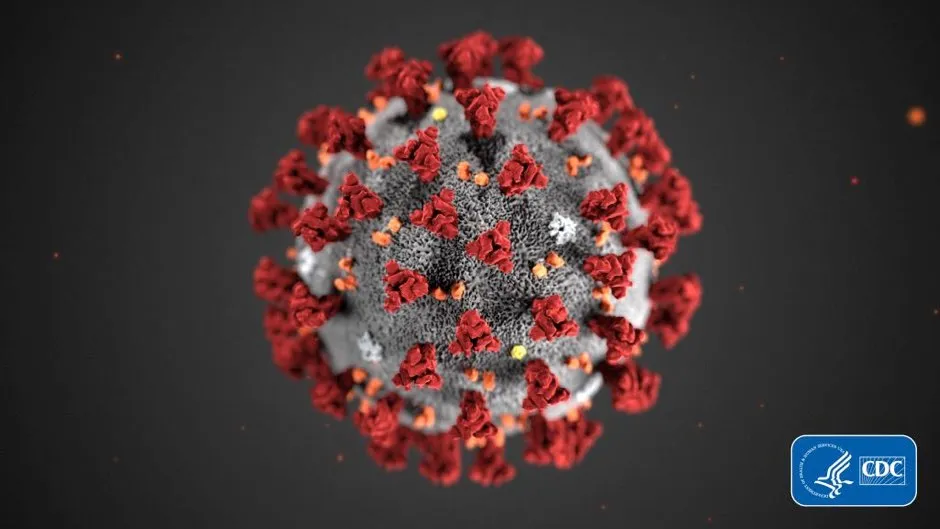A new trial has been launched to assess whether ibuprofen may hold the key to preventing severe breathing problems in COVID-19 patients.
Experts are assessing whether a special formulation of the cheap drug could help reduce the serious side effect seen among patients infected with the novel coronavirus.
It is hoped that the special formulation of the cheap anti-inflammatory drug, to be delivered at a certain point in illness among hospital patients, will reduce severe respiratory illness.
This could potentially lead to shorter hospital stays and fewer patients needing help in intensive care units (ICU).
Read the latest coronavirus treatments news:
- Far-UVC light could be used against coronavirus without harming people
- COVID-19: More than 500 scientists from around the globe to analyse patients’ blood
- Oxford coronavirus trials: here's what we know so far about the COVID-19 vaccine
Mitul Mehta, professor of neuroimaging and psychopharmacology and director of Centre for Innovative Therapeutics at Kings College London, told the PA news agency: “It’s a trial for patients with COVID-19 disease to see if giving them an anti-inflammatory drug – a specific form of ibuprofen – will reduce the respiratory problems they have.”
He stressed that the trial was for hospitalised patients – not those who have mild or suspected COVID-19.
Participants will be drawn from those who are hospitalised, but not so ill they are in need of intensive care.

“And if we can reduce their symptoms at that stage we have a number of benefits: we could reduce the amount of time that someone spends in hospital – they might recover quicker and go home, that’s obviously a fantastic outcome; we also might be reducing the degree of respiratory distress so that it can be managed in the hospital setting, without needing to go to ICU. And that is a fantastic outcome as well.
“Theoretically, this treatment, given at this time, should be beneficial.
“But of course, this is based on animal studies. It’s based on case reports, we need to do a trial to show that the evidence actually matches what we expect to happen.”
Read about the coronavirus vaccine:
- Coronavirus vaccine: The race to create a cure for COVID-19
- How do scientists develop vaccines for new viruses?
- Coronavirus treatments: five alternatives to vaccines
Prof Mehta said that animal studies into acute respiratory distress syndrome – a symptom of COVID-19 disease – shows that around 80 per cent of animals with this condition die.
But when they are given this special formulation of ibuprofen the survival rates increase to 80 per cent.
“This is very promising,” he said. “But of course it is an animal study, so we want to translate that really compelling result into humans.”

The Liberate trial is a joint effort between experts from Guy’s and St Thomas’ NHS Foundation Trust, King’s College London and the pharmaceutical organisation the SEEK Group.
Half of the patients enrolled in the trial will receive standard care and the other half will receive standard care plus the special ibuprofen formulation.
It is hoped that the way the drug has been formulated will reduce potential gastric side effects linked to ibuprofen.
Professor Matthew Hotopf, director of the NIHR Maudsley Biomedical Research Centre said: “This highly innovative therapeutic approach seeks to rapidly advance a potentially important new treatment. If successful, the global public health value of this trial result would be immense given the low cost and availability of this medicine.”
Early on in the pandemic, there was controversy over the use the drug after a French health minister advised against the use of ibuprofen.
Scientists in Britain launched a review to assess ties to the drug and COVID-19.
The Commission on Human Medicines’ expert working group concluded: “There is currently insufficient evidence to establish a link between use of ibuprofen and susceptibility to contracting COVID-19 or the worsening of its symptoms.”
Could hydroxychloroquine be used to treat COVID-19?
There’s been a lot of hype around this drug’s potential for treating COVID-19. In May, Donald Trump claimed that he wastaking hydroxychloroquineto protect himself from the coronavirus (he’s since said that he’s finished his course of treatment). But so far, high-quality evidence for its effects are lacking.
Hydroxychloroquine has been around for 65 years, first as a treatment for malaria, and more recently for autoimmune diseases such as lupus and rheumatoid arthritis.
Lab experiments over the past few decades have shown that hydroxychloroquine and the related drug chloroquine can also block the action of many different viruses, including HIV, influenza,Ebolaand, most recently, the SARS-CoV-2 coronavirus.
The drugs prevent the viruses from releasing their genetic material into human cells, so the viruses are unable to replicate and start an infection.
Because of these antiviral properties, many scientists hoped that hydroxychloroquine could be used to treat or prevent COVID-19. But there’s a large gap between how drugs work in the lab and how they work in people, and hydroxychloroquine hasn’t previously passed any clinical trials (studies that involve patients) for other viruses.
Since COVID-19 first began to spread, scientists have been carrying out clinical trials with hydroxychloroquine and chloroquine, giving them to patients with COVID-19 and comparing the outcomes with COVID-19 patients who haven’t been given the treatment.
So far, there’s no conclusive evidence that hydroxychloroquine or chloroquine can effectively prevent or treat COVID-19. An analysis published inThe Lancetin May suggested that these drugscould even be harmful– they were associated with an increased risk of heart rhythm problems and death in COVID-19 patients.
This prompted the World Health Organization totemporarily drop hydroxychloroquine from its own study into experimental COVID-19 treatments, although many other experts have since expressed concern over the paper's data and methodology.
There are still over 100 other clinical trials around the world looking at hydroxychloroquine, and it’s possible that in some patients the drug could be helpful, but the signs aren’t looking good.
Read more:
